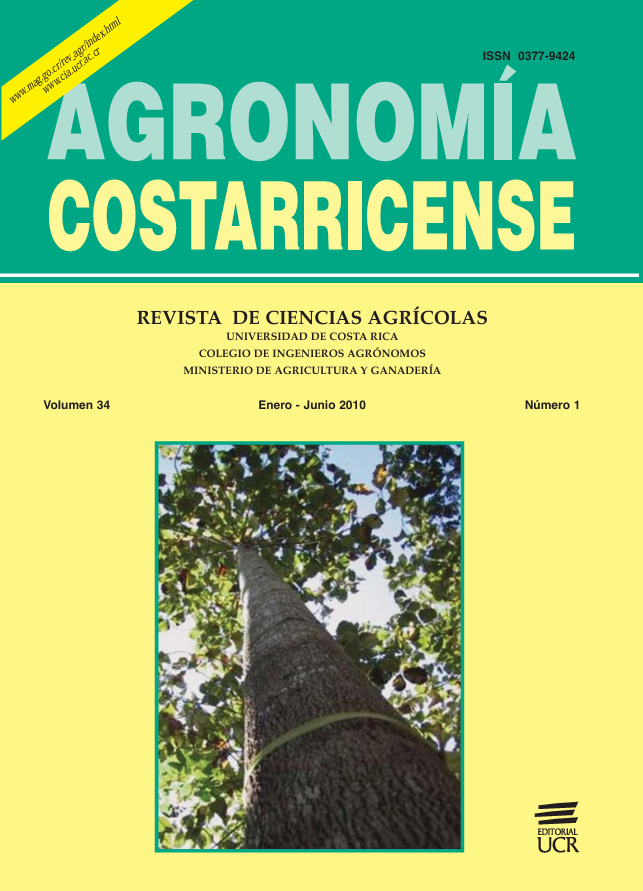Abstract
Organic amendments have been used as a substrate which is able to suppress soil-borne plant pathogens. Since these effects vary depending on the type of compost and the plant pathogen system, the aim of this work was to evaluate the suppressive effect of different organic fertilizers against cocoyam root rot disease, caused by Pythium myriotylum. For this purpose, the effect of the composting process (compost vs. vermicompost), origin (animal manure vs. coffee fruit-peel pulp) and degree of maturity were tested. Stability and microbial activity of the organic amendment were also determined. The suppressive effect over disease development on cocoyam was established by using a visual severity-scale on days 3, 6, and 9 after transplant. The organic fertilizers presented C/N ratios between 6 and 15. Neither affected the germination or root-length of cucumber seedlings. The mature organic fertilizers classified as stable; and the immature ones, with the exception of the coffee pulp compost, as unstable. The treatment with the best result in reducing root rot disease incidence was the mature, vermicomposted animal manure. The lowest disease severity was obtained when the soil was amended with the mature, composted or vermicomposted, animal manure. In general, the organic amendments based on animal manure were more suppressive than the ones based on coffee pulp. These results indicate that the type of composting, original material and maturity influence the suppressivity of the organic amendments.

This work is licensed under a Creative Commons Attribution-NonCommercial-NoDerivatives 4.0 International License.
Copyright (c) 2016 Agronomía Costarricense

